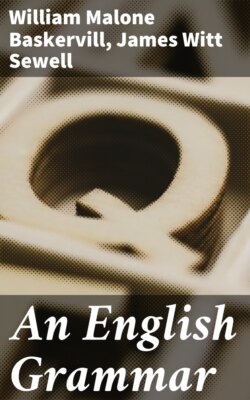Читать книгу An English Grammar - James Witt Sewell - Страница 42
На сайте Литреса книга снята с продажи.
III. The Objective.
ОглавлениеTable of Contents
The old dative case.
89. In Old English there was one case which survives in use, but not in form. In such a sentence as this one from Thackeray, "Pick me out a whip-cord thong with some dainty knots in it," the word me is evidently not the direct object of the verb, but expresses for whom, for whose benefit, the thing is done. In pronouns, this dative use, as it is called, was marked by a separate case.
Now the objective.
In Modern English the same use is frequently seen, but the form is the same as the objective. For this reason a word thus used is called a dative-objective.
The following are examples of the dative-objective:—
Give me neither poverty nor riches.—Bible.
Curse me this people.—Id.
Both joined in making him a present.—Macaulay
Is it not enough that you have burnt me down three houses with your dog's tricks, and be hanged to you!—Lamb
I give thee this to wear at the collar.—Scott
Other uses of the objective.
90. Besides this use of the objective, there are others:—
(1) As the direct object of a verb.
They all handled it.—Lamb
(2) As the object of a preposition.
Time is behind them and before them.—Carlyle.
(3) In apposition.
She sate all last summer by the bedside of the blind beggar, him that so often and so gladly I talked with.—De Quincey.
